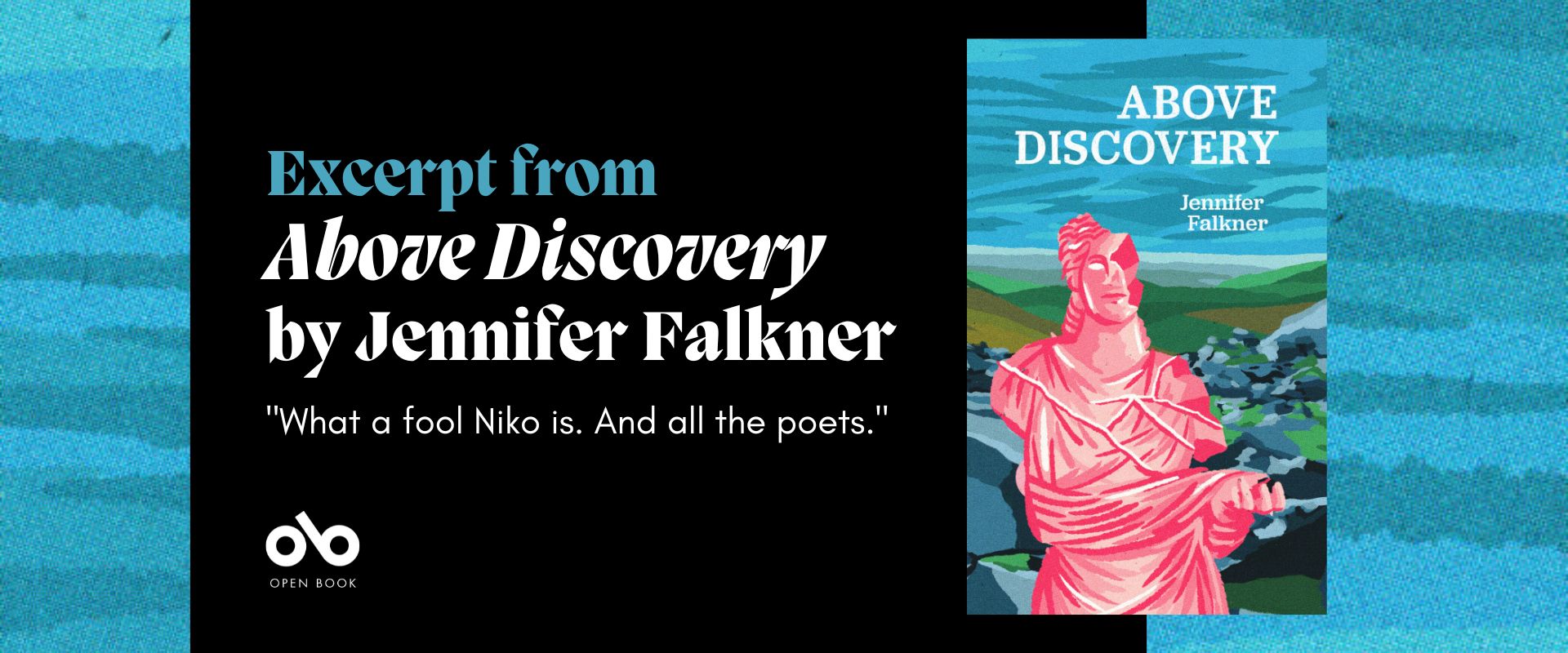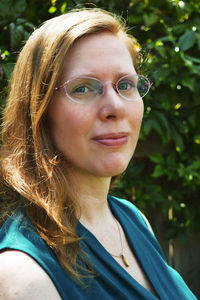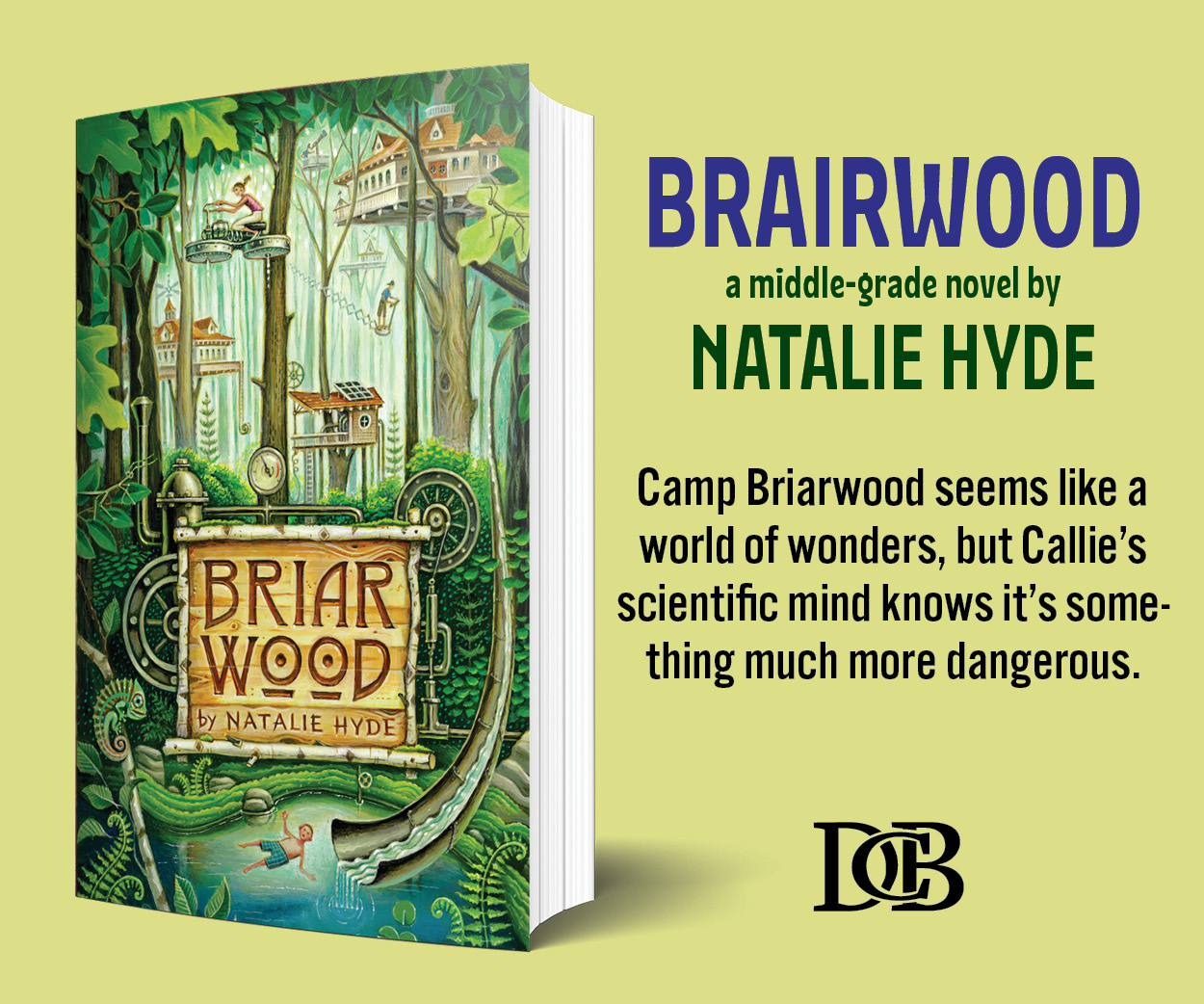Read an Excerpt from Above Discovery, Jennifer Falkner's "Utterly Fresh and Enchanting" Debut Short Story Collection
Above Discovery (Invisible Publishing) is Jennifer Falkner's debut collection, but being a first-timer didn't hold Falkner back in the least: epic, far-ranging, and filled with lavishly imagined tales, the stories in Above Discovery are complex and unflinching, obsessed with history, myth, geography, the climate, and the inequalities and strangeness inhabited in those subjects.
These are stories interested in work and labour, loss and connection. An archaeologist leaves a dream job in Syria as violence erupts, travelling home with complex guilt about those she left behind. A counsellor treats women coping with climate anxiety, staying focused on her job until her work and personal lives unexpectedly collide. And in our excerpt today, courtesy of Invisible Publishing, a group of workers open themselves up to serious trouble through a simple but fateful conversation, highlighting the power of words and creativity, and their ability to rattle oppressors.
These twelve stories have earned wide praise already, after coming out just a few weeks ago. Literary critic Steve Beattie praised the book in the Toronto Star as "exquisite [and] elegant... utterly fresh and enchanting", and Quill & Quire awarded the book a coveted starred review.
Today we're sharing an excerpt from "A Word to Describe the Sky", a tense and jarring historical tale.
Excerpt from "A Word to Describe the Sky" in Above Discovery by Jennifer Falkner:
We are humble artisans. We have no philosophical education. You won’t find a Thales or a Herakleitos among our ranks. We work with our hands. Our nails are always dirty and our hours are always filled by the demands of our work, our foreman, our wives. And then Niko had to go and mess everything up.
“Hey, Philo,” he says to me one day, leaning over my work so his shadow obscures the leather handle I am struggling to fix to the inside of the shield. Hektor has skimped on materials again and the leather is brittle, unyielding. My fingers are sore from wrestling with it. “What colour would you call that?” he asks, pointing upward.
“Call what? The sky, you mean?”
“Yeah.”
“I dunno. Sky-coloured, I guess.” Niko’s breath smells like onions. I try to breathe through my mouth until he leans again over his own work. He’s supposed to be polishing the thin bronze layer that covers the wood, polishing so it catches the sun and blinds the enemy with its light.
He nods slowly, chuckling and yet serious too. But Niko was like that. Never just one thing at a time.
Your CanLit News
Subscribe to Open Book’s newsletter to get local book events, literary content, writing tips, and more in your inbox
“Sky-coloured,” he says. “That’s good.”
But then it’s the sea he can’t shut up about.
“Do you want to know if there’s a storm coming?” I ask. I know the water usually darkens before Poseidon unleashes his fury, but today it’s smooth and calm.
“No, no,” he says. “Just... can you describe it? The sea.”
“Yeah, Nico,” I say. “It’s full of fish. Can I get back to work now, please?”
There’s a large order on, and our daily quota has increased. Neither of us particularly likes Hektor, our foreman, or his filthy temper. Or the feel of his whip when his quotas aren’t met.
But Niko won’t stop.
“It’s just that the poets call it wine-dark, don’t they,” he says. “Only it doesn’t look anything like wine. And the sky? Hammered bronze, they call it, but”—and here he lifts up his shield—“does that look anything like the sky to you?”
I have to admit that it doesn’t.
The sun starts to slip behind the hills. Time to go home. Niko and I sometimes walk part of the way together—he lives just on the other side of Diomedes’ field but I make sure to slip out quickly, barely aware of the cool wind on my overheated cheeks in my hurry. I hear him calling my name, but I don’t turn around.
Myrrhine is worried. Whispers have floated up from the fishing village of foreign ships, of men speaking with strange accents landing farther up the coast. Our farmers, dressed as soldiers, not infrequently march off to battle once the crops are in, but war seldom comes to us. The news does not look good.
I tell her about Niko and his questions, mainly to distract her. She frowns, not really listening, and says she is taking the children to her father’s. He lives far inland. They will be safer there.
“You can come,” she says. “If you want to, you can come. You are no slave. Hektor can’t make you stay.”
But Hektor gives me work. I don’t need to tell her this; she knows I won’t leave. The simple need to provide for my family makes me stay where my work is.
It won’t be for long, she promises, and kisses my cheek.
It is August now and the sea is troubled. It’s not just restless and heaving, though it is that too, but it seems filled with thunderheads and wires of lightning. The riverbeds are dry, and the grass is yellow and crunches underfoot.
Foreign soldiers in dazzling fish-scale armour and pointed caps march into our village. The few of us who are left, who hadn’t run from the ships and the gods’ prophecies, are taken and slaughtered or merely taken. We’re bundled into the hold of their ships; our captors shout at us in babbling tongues. Sometimes they slow their speech, as if talking to thick-witted children, before striking us for still not understanding them. I don’t know where Niko is. I stayed behind because I thought he did too.
But I am a slave now. The strangers have placed a metal collar around my neck and leashed me to a row of other men, marched me into their ship. We sit huddled at one end, behind the foreign slaves who wield the long-handled oars. I wonder what the strangers’ land is like. Will there be horn-curved oxen grazing in fields? Will they have rivers not yet drunk dry by invading armies? One day, when I have learned their terrible language, will I find they have a word to describe the sky?
It is so dark that I can barely see the others. Just the form of their bowed heads, defeated shoulders. Just the whites of their eyes.
“Philo? Is that you?”
“Niko!”
“No, it’s Hektor, you fool.” His voice is barely above a whisper. “We have to get out of here. Can’t you feel it?”
Now I can. The boat is creaking, listing. The voices above us are urgent, the footsteps pounding the deck above our heads, hurried.
“Can you swim?” Hektor asks.
“No.”
“Better stick with me then.”
Suddenly he is untying the rope that binds my metal collar to the others. I don’t have time to wonder, let alone ask, how Hektor got himself free. I bend toward the man next to me, the one who smells like he sleeps with goats, but Hektor grabs my arm, hisses in my ear. “We don’t have time,” he says.
Up on the deck, rain pelts down on sailor and slave alike, pours into our eyes. Hektor propels me to the low wall of the ship. I look down. The neat rows of oars aren’t trying to cut through the swell; with the listing of the boat, they can’t even reach the water. There is a splash. And another. Another. Men all around us are turning into rats.
“Quick! Follow me!”
And Hektor too is gone, vanished into the heaving broth. I lurch in the direction of his voice, I reach for the low wall, I jump—
What a fool Niko is. And all the poets. The sea is not as dark as wine. The sky is not like polished bronze. The water, the air. They are clear.
They are nothing.
_________________________________________________
Excerpt taken from "A Word to Describe the Sky" in the short story collection Above Discovery by Jennifer Falkner, published by Invisible Publishing. Copyright © Jennifer Falkner, 2023. Reprinted with permission.
Jennifer Falkner lives in Ottawa, on the traditional, unceded territory of the Algonquin Anishinabeg First Nation. She has degrees in ancient history, and currently works as a library technician. Her stories have won the HWA/Dorothy Dunnett Short Story competition, the Retreat West Short Story Contest, and the Little Bird Short Story Contest. She is the author of the novella Susanna Hall, Her Book, inspired by the life of Shakespeare’s daughter. Find out more at www.jenniferfalkner.ca.





